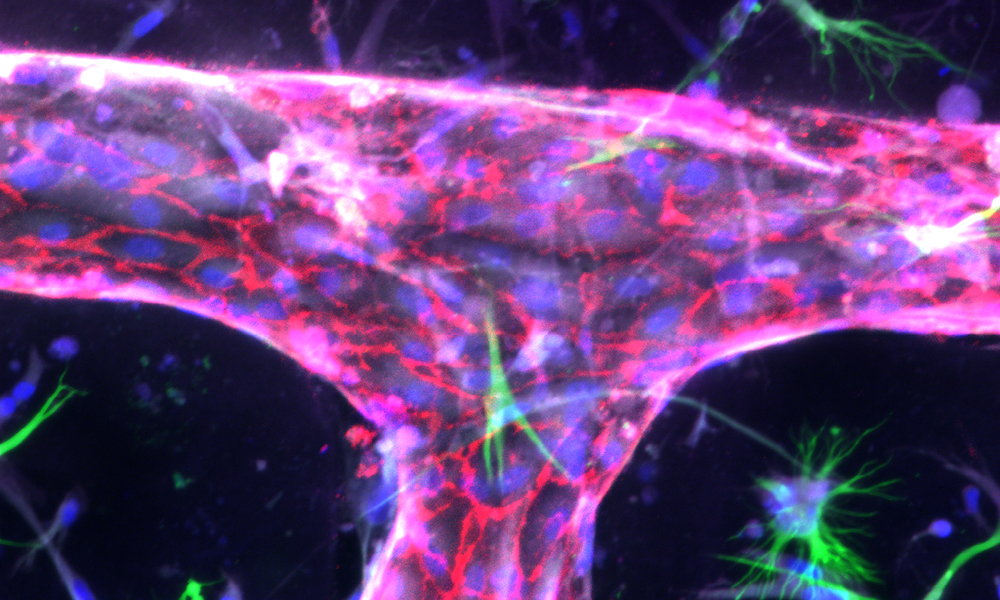
Barriers against malaria

The current COVID-19 pandemic shows how important it is to get a better understanding of infectious diseases. The Bernabeu Group at EMBL Barcelona aims to increase our knowledge of cerebral malaria, a severe disease that causes around 400,000 deaths each year. Ultimately, this will help us find ways to fight it.
In contrast to other infectious agents, malaria parasites do not infiltrate and infect the brain itself. Instead, they stick to the brain’s blood vessels, causing a rupture of the blood–brain barrier, which may lead to brain swelling and neurovascular alterations. To study this process, the Bernabeu Group creates in vitro engineered networks of human blood vessels (shown here in red and blue) and brain cells called astrocytes (green).
With the help of these vascular networks, the group wants to recreate the barrier properties found in the human blood–brain barrier. This will enable the scientists to study how malaria parasites cause cerebral malaria, which will hopefully provide a way to fight the disease.
From 25–27 May 2021, EMBL brings together malaria researchers for the 17th edition of the EMBL Conference ‘BioMalPar XVII: Biology and Pathology of the Malaria Parasite’. This year’s conference, which will be held virtually, will address fundamental questions about the biology of the malaria parasite, the mosquitoes that carry it, the immune response of the host, and the latest technological approaches to studying and treating it. Sharing knowledge is the basis for developing treatments and controlling the parasite’s spread.
Image credit: Bernabeu Group/EMBL
If you have a stunning picture of your science, your lab or your site, you can submit it here.


